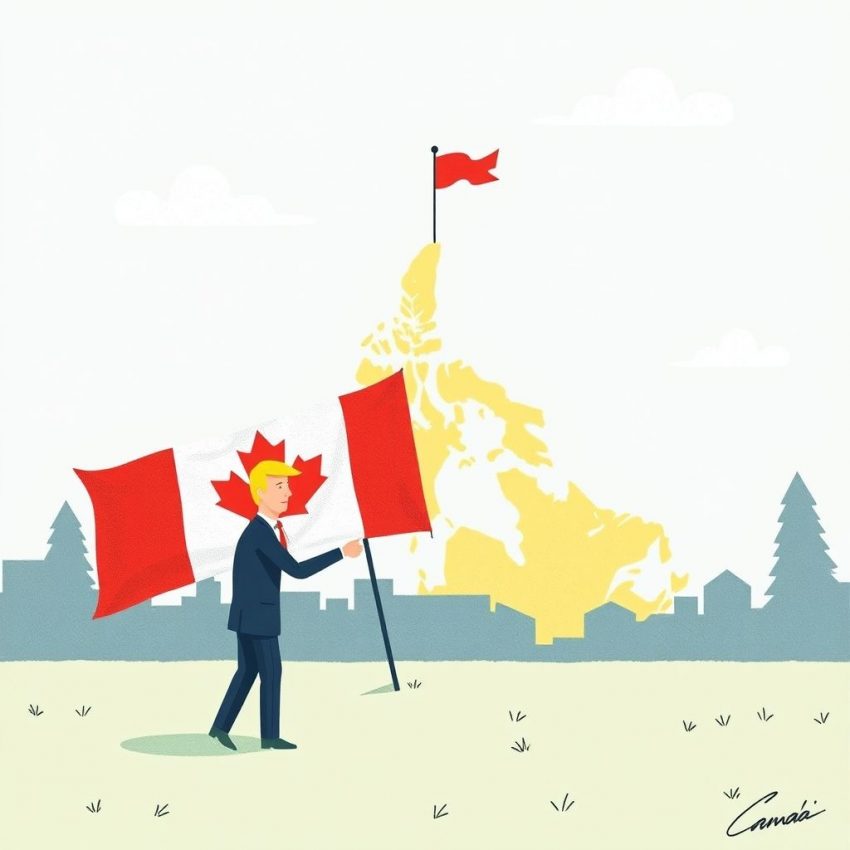Trump Ends Trade Talks with Canada Over Digital Services Tax: A Glaring Sign of Protectionism?
The world watched with bated breath as President Trump (assuming a hypothetical scenario where he's still in office) abruptly ended trade talks with Canada, citing their proposed digital services tax (DST) as the primary reason. This dramatic move has sent shockwaves through the global economy and reignited the debate over the fair taxation of multinational tech giants.
Trump's administration, long a vocal critic of what it considers unfair trade practices, framed Canada's DST as a protectionist measure targeting American tech companies. The President, in a characteristically fiery statement, accused Canada of engaging in "predatory taxation" and vowed to pursue retaliatory measures. He claimed the tax disproportionately affected US firms and created an uneven playing field.
But is this simply a case of protecting American businesses, or is there a more nuanced story at play?
The Arguments for and Against the DST:
Canada, along with many other countries, argues that a DST is necessary to ensure that multinational tech companies – many of which generate significant revenue within their borders – pay their fair share of taxes. Currently, these companies often utilize complex accounting structures to minimize their tax liabilities, resulting in a significant revenue loss for governments. Proponents of the DST argue it’s a fair way to level the playing field and generate much-needed revenue to fund public services.
Trump's administration, however, countered that the DST is discriminatory and targets American companies unfairly. They argued that such taxes are a barrier to trade and could spark a retaliatory tax war, ultimately harming consumers. The administration also pointed to ongoing efforts to reform international tax rules through the OECD, suggesting a DST is premature and undermines these broader efforts.
The Economic Fallout:
The immediate consequences of Trump's decision are likely to be significant. The termination of trade talks throws into question the future of the US-Canada trade relationship, potentially disrupting billions of dollars worth of commerce. Canadian businesses, particularly those in the tech sector, face immediate uncertainty. Furthermore, the move could embolden other countries to pursue similar unilateral tax measures, leading to a fragmented and potentially chaotic global tax system.
A Broader Perspective:
This incident highlights the growing tension surrounding the taxation of digital businesses. The traditional tax system, designed for a brick-and-mortar economy, struggles to adapt to the complexities of the digital age. The debate isn't simply about taxing American tech giants; it's about finding a sustainable and equitable way to tax businesses operating in the digital sphere while avoiding protectionist measures that could stifle innovation and harm international cooperation.
The question remains: was Trump's move a justified defense of American businesses, or a reckless act of protectionism that will ultimately harm the global economy? The answer, like many things in international trade, is complex and depends heavily on one's perspective. One thing is certain, however: this incident is likely to be a pivotal moment in the ongoing debate about the future of international taxation. The implications will be felt for years to come.
Don’t miss out on this exclusive deal, specially curated for our readers! Flexibility matters: Explore deals with free cancellation options at Expedia.com
This page includes affiliate links. If you make a qualifying purchase through these links, I may earn a commission at no extra cost to you. For more details, please refer to the disclaimer page. disclaimer page.

